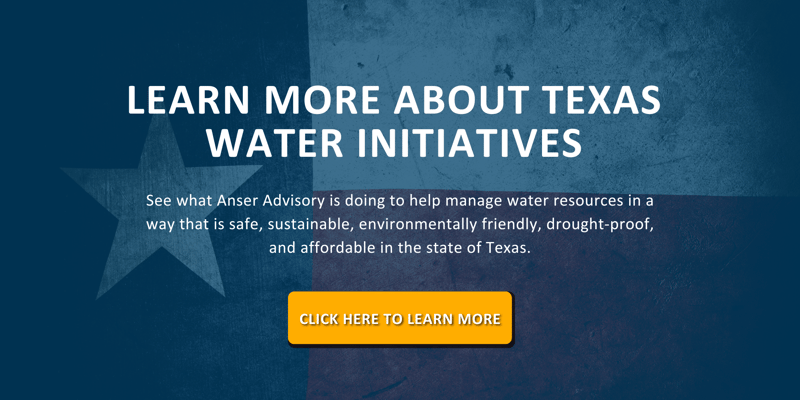In 1992 the environmental editor of the Economist Magazine wrote Costing the Earth, The Challenge for Government, The Opportunities for Business. Her principle point was that environmental resources have real value beyond aesthetics. For example, if a wetland is reduced or removed, the function of that wetland has to be replaced: water storage, aquifer recharge, flood mitigation, and much more. The cost to replace those “services” is an actual value that can be established.
But how do we value water?
Even though water and sewer bills seem high, in fact, water is generally cheaper than cable or phones, or a lot of other services. It’s delivered by the ton to our homes and offices, to hospitals and schools and businesses and lots of other places. And, it’s a limited resource. In Texas, we’ve reached some limits. In some areas, we’ve over-allocated groundwater. In others, we’ve over-allocated surface water. We’re recycling water, closing our water system by putting highly treated water into natural systems to rehydrate them, we’re running purified wastewater back through our water treatment system to use it again, and thanks to Texas Legislature, it looks like there will be additional funding to find and fix leaks. Leaks lose billions of gallons of water annually, water that has already been allocated and treated. Expensive water. Quality water.
All of these things are good. But they are not enough. We’re looking for new water supplies, but the fact is that there’s a limit.
Now what?
Conservation. All water users need to take a hard look at how and how much they/we are using water. For public supply, we measure water use per capita, that is, per person. It’s an average. Some places use more; some use less, but the fact is that almost all of us can figure out ways to reduce water use. New construction comes with low-flow fixtures, irrigation systems, and other water and energy features. Industry reuses water where it can because it must. Agricultural interests have to be efficient because new allocations are hard-to-impossible to acquire.
Technology does some work for us, but reducing per capita is a lot about changing the way we think about water and how we use water, and to change our habits, we need to value water as the precious and limited resource it is.
We can build infrastructure to replace the function of a wetland or other natural resources. But there is no substitute for water. The Texas miracle, our vibrant economy, is fueled by water. Reducing our water use, our per capita, gives us the best possible chance to keep the miracle going.
Visit waterworks4texas.com to learn more today.
About the Authors
Robert Sheets
Leader, Government Services Group, Anser Advisory

Known as a man who gets things done, Robert Sheets has spent a professional lifetime helping advance the goals of local governments. His relationships with local, regional, and state governments, as well as the Department of Defense, have been instrumental in establishing public-private partnerships with a triple bottom line: good for the community, good for business, and good for the environment.
Carlos Rubinstein
Water Policy Consultant, Anser Advisory

Rubinstein is an expert on Texas water policy. As chairperson of the Texas Water Development Board (2013-2015) he oversaw the implementation of the $2 billion State Water Infrastructure Fund. (SWIFT). He is a Board Member of the Texas Water Foundation and the Texas Water Trade. Rubinstein has served as the Texas representative to the Western States Water Council and the Border Governors' Conference Sustainable Development worktable. Rubinstein served as the Texas Commission on Environmental Quality (TCEQ) commissioner from 2009–2013. He is a former deputy executive director of TCEQ and Rio Grande Watermaster. Rubinstein has appeared as an expert witness on various environmental cases and has published several peer-reviewed articles on Texas water policy. He is a former city manager for the City of Brownsville. Rubinstein earned a bachelor's degree in biology from Pan American University.



